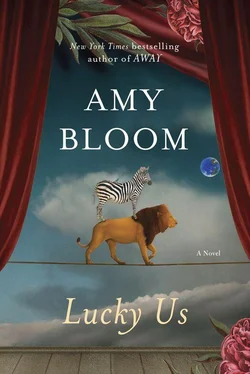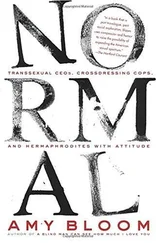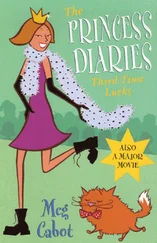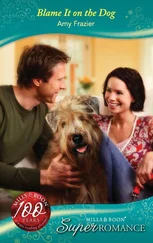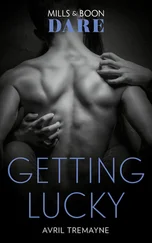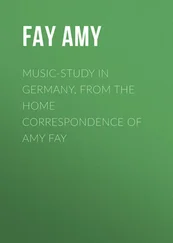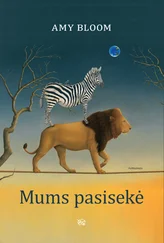“Books make a room,” she said. She gave Bea and Carnie each a heavy silk French scarf, red for Bea, emerald green for Carnie, and then she said, at the door, “I’m taking a little trip, my dears. We’ll see each other before Christmas.” (We would not.)
Bea and Carnie talked about where she was going and why and with whom, all the way home. I took BUtterfield 8 out of the bag and read it on the train to Great Neck, and on the bus to Pond Road.
THAT NIGHT, I WALKED into the Torelli kitchen for a snack, and almost tripped over my father, drinking a cup of coffee. My father and I were hardly ever alone together. Reenie and Iris were a couple. My father and Clara were a couple. I was, to everyone, including me, odd man out.
“Hello, stranger,” he said.
He asked me what I thought about Iris and her friend Reenie and I said, Not much.
They seem very fond of each other, he said.
I said they certainly did and I might have rolled my eyes a little, disloyally, just to show my father that I wasn’t such a fool as Iris to be losing my marbles over other people, other girls, all the time. My father smiled. He said, You know what Oscar Wilde said — women are meant to be loved, not understood. Applies to both of them, darling. And I nodded, although it seemed to me that I was going to be a woman too and I would like it if someone thought they should understand me.
What’s in the bag? he asked. I showed him the books. He whistled when he saw BUtterfield 8 and he asked me if I found it racy. I said I found it sad, and I could see that he liked my answer, and I hoped he’d ask me about the other books and that I’d come up with deep, interesting answers.
“You know what I like to read,” he said. “Those Little Blue Books we read on the great trek east. There are thousands of them. As Phineas T. Barnum said, something for everyone.”
My father washed and dried his cup and we walked back to the carriage house in the dark. He put his hand out to keep the forsythia branches from smacking me in the face.
When I need to call up my father, when I want to feel loved by him, I remember him dancing with me in my bedroom back in Abingdon, before my mother left me on his porch. I think of him guiding me through the forsythia bushes, his fingers brushing the moths away from my face at the carriage-house front door.
There was nothing wrong with our carriage house. It was not as nice as my father’s house in Windsor but it was nice enough in its practical, un-showy way. Everything in it was useful, a little worn, mostly brown. Nothing matched. Nothing was lacy or embroidered. My father and I sat in our living room while he hung up his jacket and put on his slippers. He took all of the books out of Mrs. Vandor’s bag: Robert Benchley, Dorothy Parker, S. J. Perelman, more John O’Hara, and O Pioneers! by Willa Cather. At the bottom of the bag was an old deck of cards, with green plaid on the back and all kinds of pictures.
“Tarot,” my father said, biting off both t ’s. “The secrets of the universe. God help us.” I was not averse to knowing the secrets of the universe. My father threw the top two cards on the table: the Queen of Cups, a grim blonde in a long white dress, on a granite throne. The Lovers, Adam and Eve holding hands under a winged god with flaming hair. He threw down another three, a man weeping in his bed under a stack of nine swords, a dwarf standing on big, star-stamped coins, a rainbow of ten gold cups. My father snorted. “Not the woman her library would have led me to believe,” he said. “Appalling.”
IN THE MORNING, I found a box of thirty Little Blue Books outside my door. His note said, “Educate yourself.”
History of Evolution; Poems of John Keats; Auto-Suggestion — How It Works; French Self-Taught (heavily penciled); What Every Married Man Should Know; What Every Married Woman Should Know; How to Make All Kinds of Candy; Psycho-Analysis — The Key to Human Behavior; Proverbs of Japan; Proverbs of China; Proverbs of Italy; Proverbs of Russia; Proverbs of Arabia; Chekhov’s Short Stories. And underneath a dozen more: An Introduction to the Reading of Tarot.
THE SEVENTY-EIGHT CARDS CAME with a small, stained instruction booklet. Every picture told a story and the stories suited me. Occasionally, the pictures were cheerful: a juggler skipped along holding big coins, the naked lady dipped her pitcher into a starry pond (the Star) but more often, Death rode in on a big white horse, dogs bayed at a frowning moon, lightning struck a forbidding tower and it burst into flames.
I came to love the Tower. Unlike the other seventy-seven cards, whose meanings can be reversed, or at least muted when the card is turned upside down, the Tower is always the Tower. Right side up, catastrophe. Upside down, damn near catastrophe. It scared the bejesus out of my clients, when I got them, and led to extra readings, until I’d choose to tuck it away. Major and minor arcana. Instead of clubs, spades, hearts, and diamonds, the suits were wands, cups, pentacles (the big coins), and swords. You could use them to represent the four seasons, the four elements, the soul, the body, the mind, and the heart. You could use them to represent just about any four things that anyone might want to hear about.
I brought the cards and the booklet to the beauty parlor and I asked Bea and Carnie if I could set up in their shop. Bea and Carnie were great respecters of enterprise, and since — as Bea said — I didn’t seem like the kind of girl who was going to land a successful husband or a rich beau anytime soon, they gave me a card table in the waiting area. Neither of them knew anything about tarot but they both flipped through the cards (Bea crossed herself, quickly) and by the time they’d finished checking the cards for anything that would not be in keeping with the high tone of La Bella Donna, they’d already made rules for me. Ten-minute readings, because we had to keep traffic flowing, unless there was a slowdown in the shop, in which case I could expand. (This was fine with me. I didn’t think I had more than ten minutes of hocus-pocus in me.) One dollar a reading. (Bea thought maybe fifty cents but Carnie said, What, now she’s gotta make change?) And they agreed that sometimes people didn’t tip for this kind of thing.
Are you going to tell them bad news? Carnie said. I said that I thought a little bad news was probably part of it. Carnie said it’d be better for business if I didn’t give out with imminent death or something really bad happening to a client’s child, right there in the salon. (None of us thought for a minute that I had psychic powers.) I wore a skirt and blouse and Carnie did my hair and makeup. (You don’t have to be a beauty queen,” she said. You just have to look normal attractive because you’re in our shop. You represent us. But you need to look like you know something special, Bea said. She dotted a beauty mark near my mouth.)
They steered me to Mrs. Russo. Mrs. Russo’s husband had left her six years ago and she’d never gotten over it. She thought she saw him everywhere. She called the police once a month and on their last two anniversaries she had tried to kill herself. Bea thought that if anyone would give me a dollar, it’d be Mrs. Russo.
Mrs. Russo and I faced each other over the little table. I’d wrapped the cards in one of Iris’s silk scarves. I made a big show of unwrapping them and I asked Mrs. Russo to hold the cards. She squeezed them like they were Mr. Russo. I flipped over nine cards, for past, present, and future. I said I saw Mr. Russo, lured away by evil companions. I said that he had been in a car accident and lost his memory. I described the present as filled with strength (the woman with a chain of flowers, holding a lion) and said that the future held peace for Mrs. Russo and no pain for Mr. Russo. Mrs. Russo thought this was the best thing she’d heard. She told her sister, who gave me another twenty-five cents, just to say thank you. Mrs. Russo’s cousin Sylvia by marriage, with the reputation, watched while I laid down the cards for her cousin. Nice, she said. After my henna, you can do me. I gave Sylvia Russo a man madly in love with her, who wanted to marry her. She looked very pleased. I said that she should not marry this man because he wasn’t good enough for her. He was not telling her the whole truth, I said. Mrs. Russo and her sister stood over their cousin’s chair. I told Sylvia that within a year, after she turned down the current no-good liar, another man would come along. A good man. That man she should marry. The Russos dabbed at their eyes. I was launched.
Читать дальше
